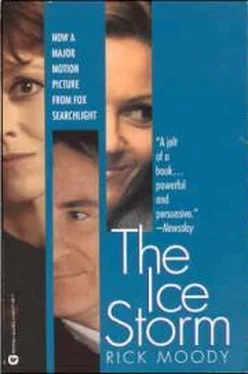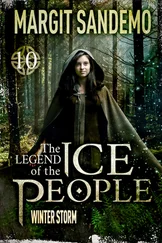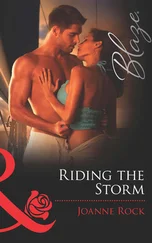He was at the ticket window by ten minutes past, and he slipped between the doors on the train just before they closed. A dozen other burnouts, including some older guys he thought he remembered from public school — bar drinkers and lonely souls — were strewn around the empty car. When the train began to roll, Paul Hood laid himself out lengthways on the three-seater like a corpse on the marble mortuary slab.
And in that first moment of repose, he remembered issue #141 of The Fantastic Four. Like a desert oasis to him. Deviants and losers and mutants and the loveless, these, Paul Hood’s people, were the proper readers of Marvel comics.
To recap: In issue #140, Annihilus was busy trying to take control of the world. Natch. This was all happening in the Negative Zone, that universe beside our own, where the laws of nature were subtly altered. Annihilus was a sort of insect — a late-model Gregor Samsa — who had been transformed through the agency of some extinct Negative Zone creatures, called Hereroes, into a winged, metallic fighting machine in pursuit of immortality. The control of the universe was his goal. The means to this end, in Annihilus’s view, was none other than the F.F. In particular, he intended to sap the powers of young Franklin Richards, who was being held in the country by his mother, Sue — away from Reed, her husband, who never gave enough time to his child, who was no kind of father or husband.
Agnes Harkness, Sue’s former governess, had been hypnotized by Annihilus into leading Sue and Franklin to the Negative Zone. Reed, Johnny, Ben, and Medusa — who had assumed Sue’s spot on the team way back in issue #112 — and Johnny’s old college roommate, Wyatt Wingfoot, followed.
Most of the issue, though, was just a setup. Annihilus narrated at length his origins to Wyatt Wingfoot. This was the kind of issue that had no purpose but to insure that Paul Hood would purchase the next. Which brought Paul to #141.
Reed was set to rescue his estranged wife and son. He was half-crazy with paternal and marital loyalty. Paul had never seen him so frenzied, so… irrational. Yet as the issue opened, Annihilus had immobilized Reed and the rest of the team in some kind of antigravity paralysis. “You brought us here for a reason, Annihilus,” Reed cried out to the insect. “Revenge was part of it — but so is my son. What is it you want with him?”
Meanwhile, Alicia Masters, the blind girl who loved Benjamin Grimm was traveling to Latveria, to try to find a cure for her blindness.
The F.F. escaped from their suspended animation — they just did — and were soon walking the surface of Annihilus’s desolate planet. They fought off and befriended the telepathic aliens who lived there. And they tunneled through the rock under their foe’s fortress. Soon they had managed to penetrate the laboratory chamber where Sue, Agnes Harkness, and Franklin Reed were being held in an enormous test tube.
These last eight pages were enough to life Paul Hood from the murky bog of self-recrimination. As the cover promised, little Franklin was indeed glowing like an ATOMIC BOMB! It began with this light in his eyes, this internal and eternal cosmic power raging in him. Galaxies, endless expanses of primordial creation, were spread before him like mere toys. Medusa, Johnny, and Ben launched Annihilus into a tomb of corroded machinery. It was that simple. The stage was set for the final act of this grave domestic tragedy.
Reed wanted to get them all back to N.Y.C., where he could use his untested antimatter device to try to stabilize Franklin. Using a bogus spell in bogus dimeter, Agnes Harkness transported them back to the city. Reed rushed off to find his invention. “Wait, Medusa,” Sue suddenly cried, “what is he doing? That looks like some sort of gun! No -Reed, no!”
When Paul reached the panels on the bottom half of page thirty-one, it was as if the entire day, the entire vacation even, were leading up to a single moment. He felt certain then that Stan Lee was in some direct communication with the universe — in the way, say, that The Watcher, that most mysterious Marvel character, was content like some Gnostic entity merely to know of the machinations of creation — and that through Lee’s spiritually advanced vision, Paul’s own destiny was entrapped in the monthly serializations of these kitschy superheroes. He seemed both influenced and influencer in the world of Marvel.
So Reed blasted his son. In his haste and confusion, he used an untested weapon with all the ionizing force of antimatter particles on his own son. The alien glow in Franklin’s eyes dimmed, ending the danger of the moment, dimming in him the ancient soup of the Big Bang. But with it went the life in Franklin’s eyes, the twinkle of his joyous and questing cognition. To be replaced by darkness.
“What have you done, Reed? You’ve turned your own son into a vegetable. Your own son!…”
The last panel showed them all — Sue, with Franklin in her arms like some lifeless marionette, Wyatt Wingfoot, Johnny Storm, Medusa, and Ben — turned away from Reed. Reed, devastated, wordless at the enormity of his slaughter. The end of the Fantastic Four. The end. Until next month.
Then the lights on the train dimmed, sputtered, and fell dark. The engine rolled casually to a stop. Paul knew, having logged a number of hours on the New Haven line, that this was just part of electrical train travel. But after ten minutes in emergency lighting he wasn’t as sure. Soon these lights, too, began to dim. Ominous darkness. A conductor hurried past Paul’s seat, carrying a flashlight, and the other sleepers in his car stirred, turning restlessly, as though, in their dreams, they were being roasted on spits. Out the window, Paul could see the lights along 1-95, where the slush was piled far into the lanes. The train was disabled somewhere between Port Chester and Greenwich. The snow fell, a relentless piece of bad news, and the cars crawled along, skidding and spinning. This wasn’t a simple delay. When the conductor appeared at the end of the car and gave them the news — ’ Fraid we got a downed power line, hope to have it fixed shortly — mumbling because he no more believed the news than did the restless sleepers in that car, Paul knew he was here to stay.
So he dredged the awful bottom of his loneliness, because the train was as void and still as a sensory-deprivation tank. There was nothing else to do.
He had been on every platform on the Connecticut section of the ride. He had carved his initials in the men’s room in Greenwich; he had sat on the fenders of the station cars parked in Darien; he had snuck into the bars in Cos Cob, urinated on the bushes by the station in West-port, flirted with the little girls in Rowayton and Old Greenwich. And he had traversed the southwestern part of the state by car on I-95. It was a noxious artery, more like an intestine, really, a bearer of wastes and bacteria. He knew the hotel between Darien and Stamford that had a Nixon banner on it all through the election; he knew the exact location of each and every Hojo’s between here and New Haven; he knew Norwalk Harbor and Five Mile River and Cos Cob Harbor, and the bridges there; he knew the way I-95 came down a hill into Norwalk, the way it divided in New Haven, he knew its view of the Baxter Building as the train pulled into downtown Stamford.
He knew all this, but it didn’t change his situation. His short, privileged life on the golden corridor of Fairfield County made no difference to the storm outside. It was different when you were being driven through these towns, or when you were just idling in the train stations for an hour or two. Now he was stranded. He was a stranded kid, a kid on the verge of not being a kid anymore. A kid who would be getting his license soon. A loser from a family of losers. And he was near Port Chester, the only stop on the New Haven line that had a lot of Afro-American residents.
Читать дальше












